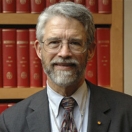
Last week, the National Academy of Sciences (NAS) and its National Academy of Medicine (NAM) announced that they will convene an international meeting this fall at which researchers, ethicists, and other experts will discuss the implications of human germline gene-editing technologies in both research and clinical applications.
The White House applauds NAS and NAM for convening this dialogue and fully supports a robust review of the ethical issues associated with using gene-editing technology to alter the human germline. The Administration believes that altering the human germline for clinical purposes is a line that should not be crossed at this time.
The scientific community has a good record of establishing and adhering to ethical principles in genetic technology. In the 1970s, scientists called for a temporary moratorium on gene-splicing technology until the implications and policies could be sorted out. Similarly, this year scientists called for a moratorium on germline-editing research until the safety and ethical issues could be explored by the community.
The advances in health technology over the past century — vaccines, antibiotics, early disease diagnostics, and treatment for countless health conditions — have reduced infant mortality, extended life expectancy, and alleviated suffering for millions. But new technology also brings risks and ethical challenges that require careful consideration. For example, researchers in China recently conducted genome-editing experiments in human embryos of a kind not able to develop into a fetus or a person.
Research along these lines raises serious and urgent questions about the potential implications for clinical applications that could lead to genetically altered humans. The full implications of such a step could not be known until a number of generations had inherited the genetic changes made — and choices made in one country could affect all of us.
It is important that the NAS’ international summit fully explore the implications of germline editing for the current generation and generations to come across the globe, as well as the potential for alternative technologies that do not require germline alteration to deliver similar medical promise. The Administration looks forward to seeing the results of the scientific community’s discussion.
Dr. John P. Holdren is Assistant to the President for Science and Technology, and Director of the White House Office of Science and Technology Policy.


